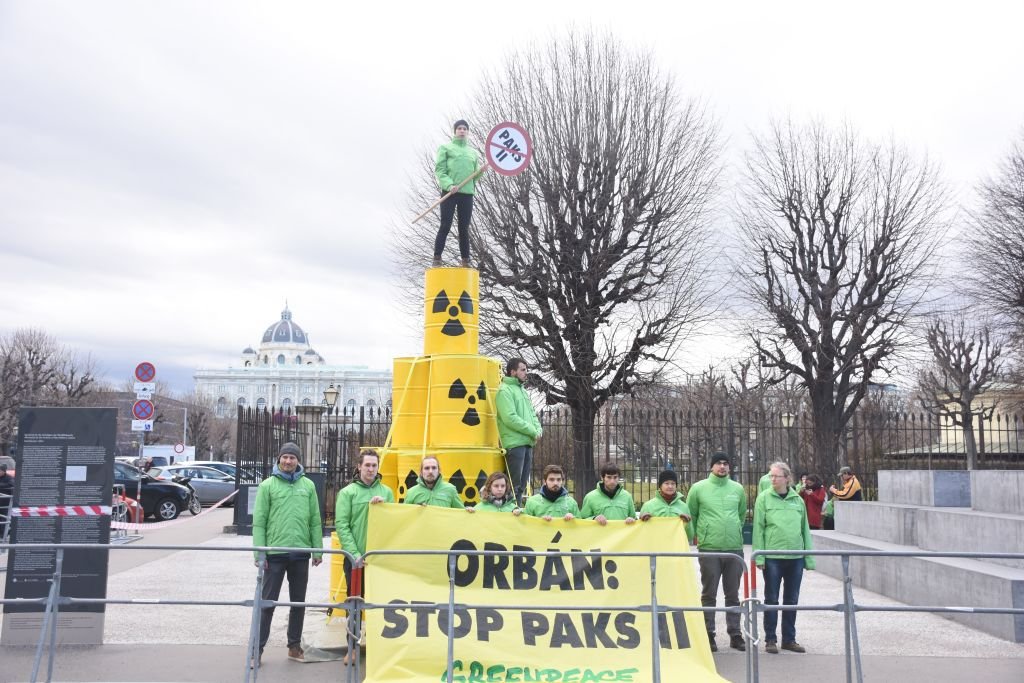The European Court of Justice has annulled a controversial 2017 decision by the EU executive to approve Hungarian state aid for two nuclear reactors being built by Russia.
The ruling hinges on a technicality: according to the EU’s top court, the European Commission should have checked whether Budapest’s decision to directly award the project to Rosatom without a public tender was legal under EU public procurement rules.
It comes at a time when Brussels is striving to cut all energy ties with Moscow in response to Russia’s war in Ukraine. Most EU countries have been phasing out imports to reduce Moscow’s leverage, but Hungary continues to buy Russian fuel and maintains close political relations with the Kremlin – a stance that has put Budapest on a collision course with Brussels.
But the Hungarian government quickly asserted that the ECJ decision does not spell the end of the line for Russian involvement in the expansion of the Paks nuclear plant, which sits on the Danube river south of the capital.
“This ruling does not establish any breach of EU law by Hungary,” EU affairs minister János Bóka told reporters in Budapest. “The court did not rule that the ongoing development in Hungary in any way breaches EU law.”
Budapest was ready to work closely with the Commission and provide “all assistance and support” needed to ensure a future positive decision from the Luxembourg-based court, the minister said.
The Hungarian government’s official line was in stark contrast to that of opposition lawmaker Bence Tordai of the green Dialogue party. “It is now certain that the Russians will not be able to build their new nuclear power plant here,” he said in a Facebook post.
“Anyone who pays even a single penny to the Russian companies building Paks 2 from now on is clearly committing a violation of the law and will face criminal consequences,” Tordai wrote.
A win for Vienna
Today’s judgment marks the successful end of a legal action brought by Hungary’s neighbour Austria, historically an anti-nuclear country, and overturns a ruling by the lower EU General Court, which rejected Vienna’s case in 2022.
“The European Court of Justice has pulled the plug on Orbán’s nuclear dreams,” the former Austrian climate action minister and current leader of the Austrian Greens Leonore Gewessler said in a statement. “Austria took legal action, assumed responsibility for Europe, and won,” she said.
Gewessler argued that “the future of energy supply does not lie in outdated and risky nuclear power plants, but in wind, water and sun” and that “those who still rely on nuclear power today are not only jeopardising safety, but also blocking the path to a proper energy future”.
European environmental NGOs were also cheering, and criticising the EU executive. According to Greenpeace EU legal strategist Andrea Carta, today’s ruling “spotlights a spectacular regulatory failure on the part of the European Commission”.
Tom Lewis, head of energy policy at Climate Action Network Europe, said it gave the Commission “an opportunity to block this project and support faster, affordable, safer and cleaner energy solutions”.
“Hungary is expecting a solar boom with over 25% of its electricity now produced by solar – pouring public money into slow and expensive nuclear risks derailing this momentum,” Lewis added.
According to the EU treaties, state aid cannot be granted without approval, suggesting that public support already paid out in this case is illegal.
The European Commission told reporters in Brussels it had “taken note” of the ruling and would “carefully study the judgment and reflect on next steps.”
(rh, aw)




